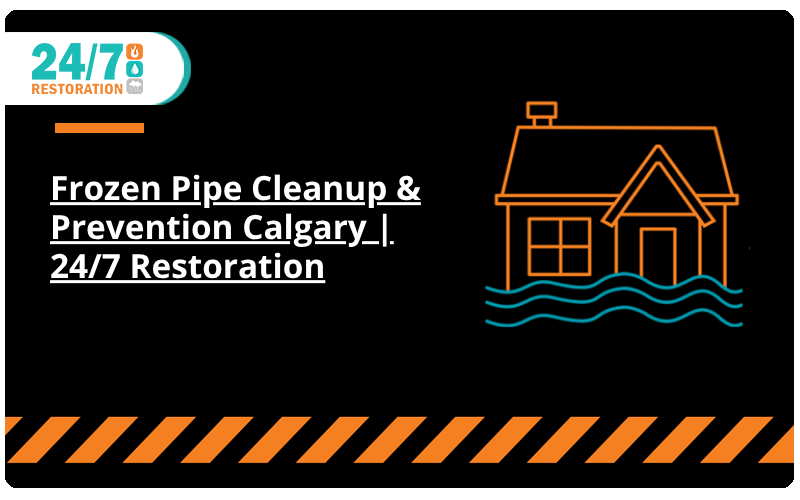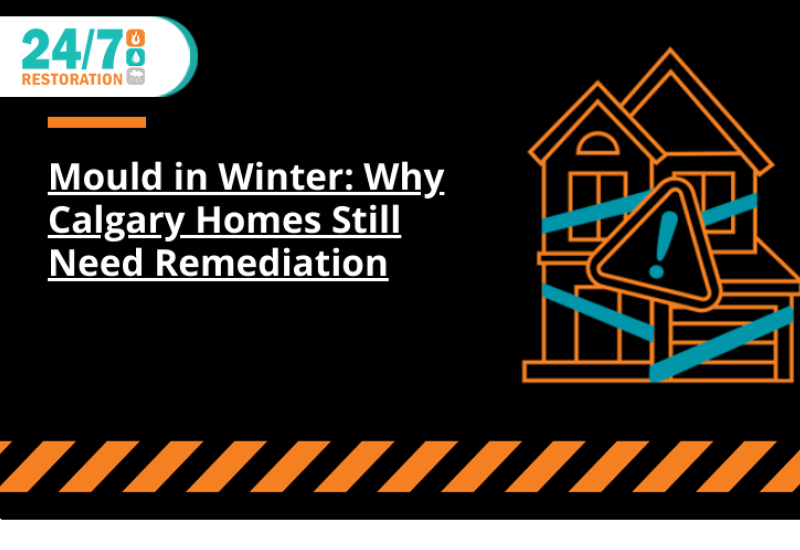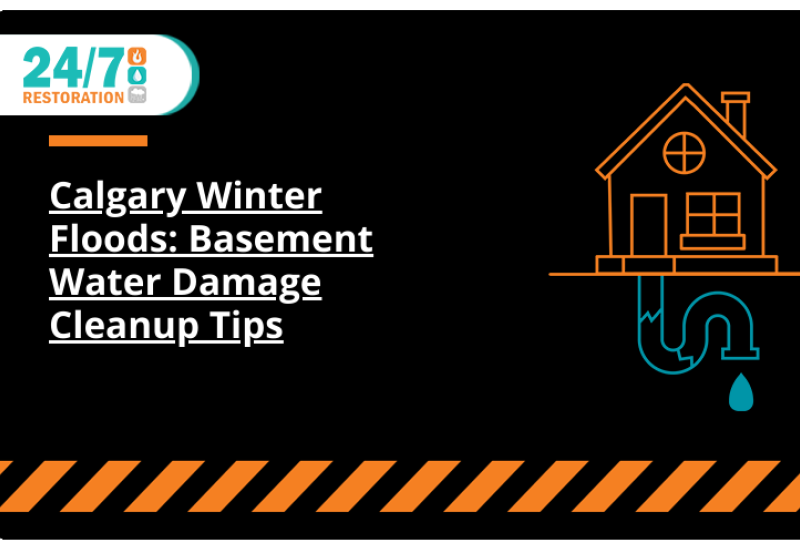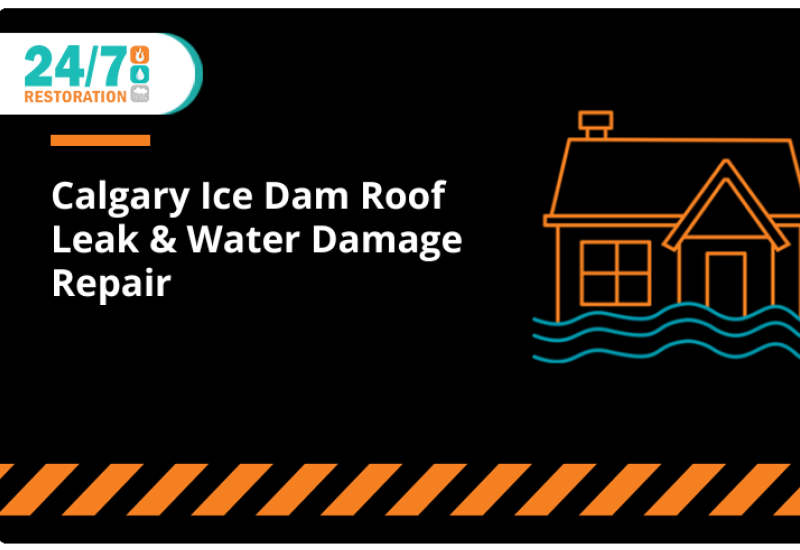Why Frozen Pipes Are a Winter Threat in Calgary
Calgary’s harsh winters create ideal conditions for frozen pipes. When temperatures plummet, water inside poorly insulated pipes can freeze and expand, leading to ruptures that flood basements, walls, and floors. The damage can be extensive, often occurring while homeowners are asleep or away. Even a small crack can release hundreds of litres of water within hours, damaging drywall, flooring, and electrical systems. Prevention and fast response are both key. 24/7 Restoration provides emergency water damage cleanup and restoration to protect Calgary homes from costly repairs when frozen pipes burst.
1. Identify Pipes Most at Risk
Pipes in unheated or exposed areas, such as basements, crawl spaces, garages, and exterior walls, are most likely to freeze. Calgary homes with older plumbing or minimal insulation are particularly vulnerable. Identifying these high-risk zones early allows you to insulate or monitor them before winter’s coldest days arrive.
2. Insulate and Maintain Vulnerable Areas
Pipe insulation is an inexpensive and highly effective way to prevent freezing. Foam sleeves, heat tape, or fibreglass wraps help retain warmth even during extreme cold snaps. Pay close attention to areas where pipes run along exterior walls or near windows. Proper sealing around foundation gaps also prevents cold air from reaching your plumbing.
3. Keep Water Flowing During Extreme Cold
During severe cold warnings, keeping a slow trickle of water running from faucets connected to vulnerable pipes can prevent freezing. Though it may slightly increase your water bill, it’s far less costly than repairing flood damage. Opening cabinet doors beneath sinks can also allow warm air to circulate around exposed plumbing.
4. Maintain Indoor Temperatures
Never let your home’s temperature fall below 16°C, even when you’re away. Setting your thermostat consistently, day and night, prevents temperature drops that lead to frozen pipes. For Calgary homeowners leaving town, it’s smart to have someone check the property regularly or install a smart thermostat for remote monitoring.
5. What to Do If a Pipe Freezes or Bursts
If water flow stops from a faucet, it may indicate a frozen pipe. Turn off the main water supply immediately to prevent flooding once the ice thaws. Gently warm the affected section using a hairdryer or space heater, never an open flame. If a pipe bursts, act quickly: shut off water, remove valuables, and call professionals. 24/7 Restoration provides emergency water extraction, drying, and structural repair to minimize damage and prevent mould growth.
6. Professional Frozen Pipe Cleanup and Restoration
Water from a burst pipe spreads rapidly through flooring and walls, and hidden moisture can cause long-term damage if not addressed. Our team at 24/7 Restoration uses advanced drying equipment and moisture detection tools to ensure your home is fully restored. We handle everything from cleanup to repairs, including insurance coordination, so Calgary homeowners can recover quickly and safely after a pipe failure.
Calgary’s Trusted Experts in Frozen Pipe Cleanup
Frozen pipes are more than an inconvenience; they can cause thousands of dollars in damage within minutes. Preparation is the best defence, but when the unexpected happens, having a reliable emergency restoration team makes all the difference. At 24/7 Restoration, we provide 24-hour frozen pipe cleanup, water extraction, and complete property restoration for Calgary homeowners. Don’t wait for damage to worsen. Contact 24/7 Restoration today for expert frozen pipe prevention and cleanup in Calgary.
FAQs
Q: Why do pipes freeze in Calgary winters?
A: Extreme cold causes water to expand inside uninsulated pipes, leading to cracks or bursts.
Q: Which pipes are most likely to freeze?
A: Those in unheated areas such as garages, crawl spaces, and exterior walls are most at risk. If your pipes have been damaged by the cold, contact 24/7 Restoration today for fast and effective water extraction and removal.
Q: How can I prevent frozen pipes?
A: Insulate vulnerable pipes, maintain indoor temperatures, and let faucets drip during cold snaps.




